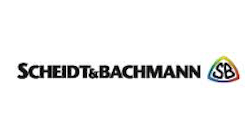The Chicago Transit Board approved an integrated bus farebox system contract at its Oct. 14 meeting that will preserve the option to pay for cash fares while allowing for more modern fare offerings supported by the Ventra system to continue to evolve. During a presentation to the board, CTA Chief Innovation Officer reported more than 9 million bus rides are paid for each year with cash; an amount that totals more than $9.68 million between January and July 2022.
The roughly $41 million contract was awarded to Scheidt & Bachmann and incudes costs for the new equipment, software and installation, as well as five years of ongoing support with warranty and an option to extend in the future. The ongoing preventive maintenance will be performed by local service technicians at a facility in the region. The 10.47 percent Disadvantaged Business Enterprises (DBE) commitment exceeds the DBE goal of eight percent, and will include subcontractors who are in the Chicagoland region and the U.S.
“While many are eager to move to a cash-less society, these new fareboxes will allow CTA to maintain the critically important and equitable cash fare option for riders. More than 9 million rides are paid for with cash each year,” said Chicago Transit Authority (CTA) President Dorval R. Carter, Jr. “All of our riders deserve payment options that meet their needs. This new farebox system will serve to modernize our cash fare collections, and also complement the continuous upgrades we’re making to our Ventra system.”
CTA’s current farebox system is obsolete after more than 30 years of heavy use and the equipment is becoming more difficult to maintain. CTA notes that replacing the old farebox equipment will result in fewer instances in which buses are delayed or pulled from service, which can impact the reliability of service.
The new fareboxes will feature an ergonomic, modern, accessible design coupled with improved back-end reporting systems, which will allow for seamless integration with Ventra and other on-board bus operating systems, providing for more efficient operations at CTA’s bus garages. The new fareboxes are expected to begin a pilot period in the summer or fall of 2023.
Some controversy and a missed deadline
The Chicago Transit Board’s vote on the farebox contract came after a competitor of the successful bidder questioned the authority’s procurement practices. A day before the board meeting, the Chicago Sun-Times published an article laying out the competitor’s concerns.
CTA and regional bus provider Pace Suburban Bus originally issued a joint Request for Proposals for both systems’ farebox systems in 2020. The Sun-Times article notes that while the competitor understood there would be two separate contracts, the CTA purchasing department issued a letter stating the contracts would be negotiated separately, which the competitor says put it at a disadvantage. While the competitor was ultimately awarded the Pace contract, the price of the contract was publicly disclosed about five and a half weeks prior to the best and final offers being due for the CTA contract. The competitor said this put them at a disadvantage for other competing firms to undercut its price.
CTA General Counsel Kent Ray and CTA Vice President, Purchasing and Supply Chain Ellen McCormack both told the board the procurement process is not flawed, rather, one bid was submitted by the final deadline, while the other was not.
“The fact is that this unsuccessful vendor submitted its best and final offer late after the time set by the CTA; because of this late submittal, CTA is required to reject this late submittal,” Ray told the board.
McCormack offered more detail about where the procurement split with Pace, explaining the two transit providers negotiated common elements and separated the process to allow each operator to directly negotiate unique elements directly with the bidders. She gave the examples that CTA needed more than twice the number of units and the CTA system would need to interface with different software.
McCormack said best and final offers were originally requested at 3:00 p.m. on May 17, which was extended to May 24 at 3:00 p.m. She said one bidder submitted its offer prior to the deadline; one submitted after.
She explained to the board, “Pursuant to our procurement policies and procedures, late submissions are rejected from further consideration.”





